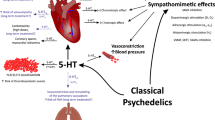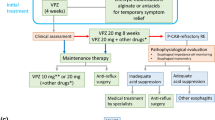Abstract
Antimuscarinic agents are the most widely used therapy for urge incontinence, but have side effects such as constipation, tachycardia and dry mouth, resulting from a lack of selectivity for the bladder. M2 receptors are the predominant cholinoceptors present in urinary bladder, but mainly the minor population of M3 receptors mediate its contraction. M2 receptors modulate detrusor contraction by several mechanisms, and may contribute more to contraction of the bladder in pathological states such as bladder denervation or spinal cord injury. Prejunctional inhibitory M2 or M4 receptors and prejunctional facilitatory muscarinic M1 receptors in the bladder have all been reported. In clinical studies, tolterodine, a non-selective muscarinic antagonist, has been reported to be as effective as oxybutynin but inducing less dry mouth. Thus, although it is not certain which antimuscarinic drugs have the better efficacy and tolerability, the non-selective antimuscarinic drugs seem to be better than M3-selective antagonists in their clinical efficacies. However, controlled release, or intravesical, intravaginal, or rectal administrations of oxybutynin have been reported to cause fewer side effects. Darifenacin, a new M3 selective antagonist, has been reported to have selectivity for the bladder over the salivary gland in vivo. To verify which antimuscarinic drugs selective for the muscarinic subtypes have the best efficacy and tolerability, comparative clinical trials between M3 selective antagonists and non-selective compounds, such as olterodine, are required in the future.
Similar content being viewed by others
Author information
Authors and Affiliations
Rights and permissions
About this article
Cite this article
Yamanishi, T., Chapple, C. & Chess-Williams, R. Which muscarinic receptor is important in the bladder?. World J Urol 19, 299–306 (2001). https://doi.org/10.1007/s003450100226
Issue Date:
DOI: https://doi.org/10.1007/s003450100226




